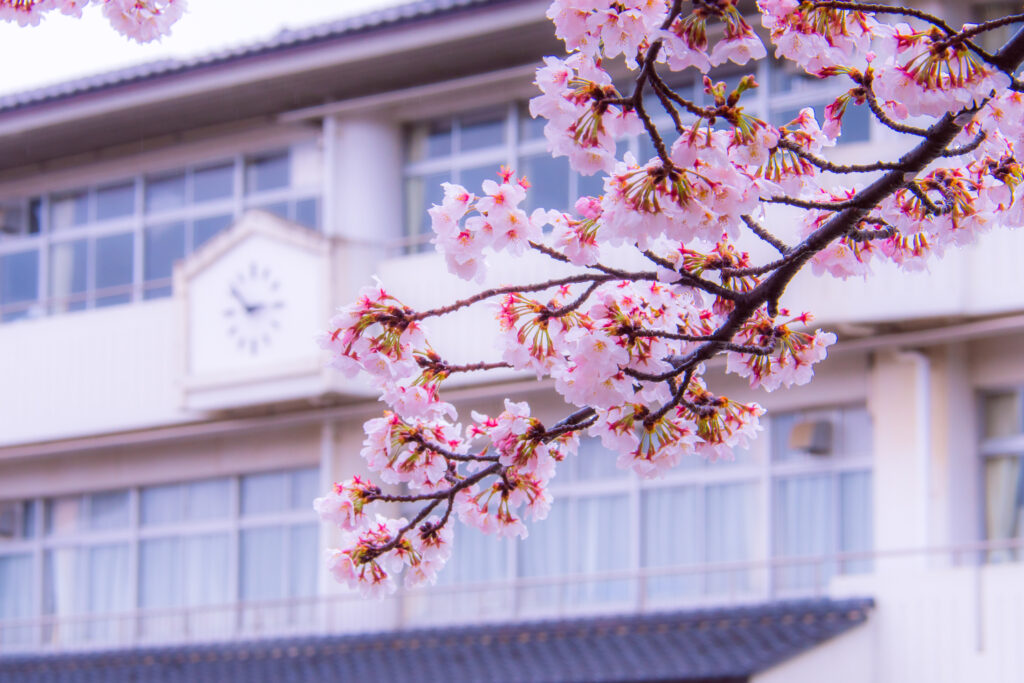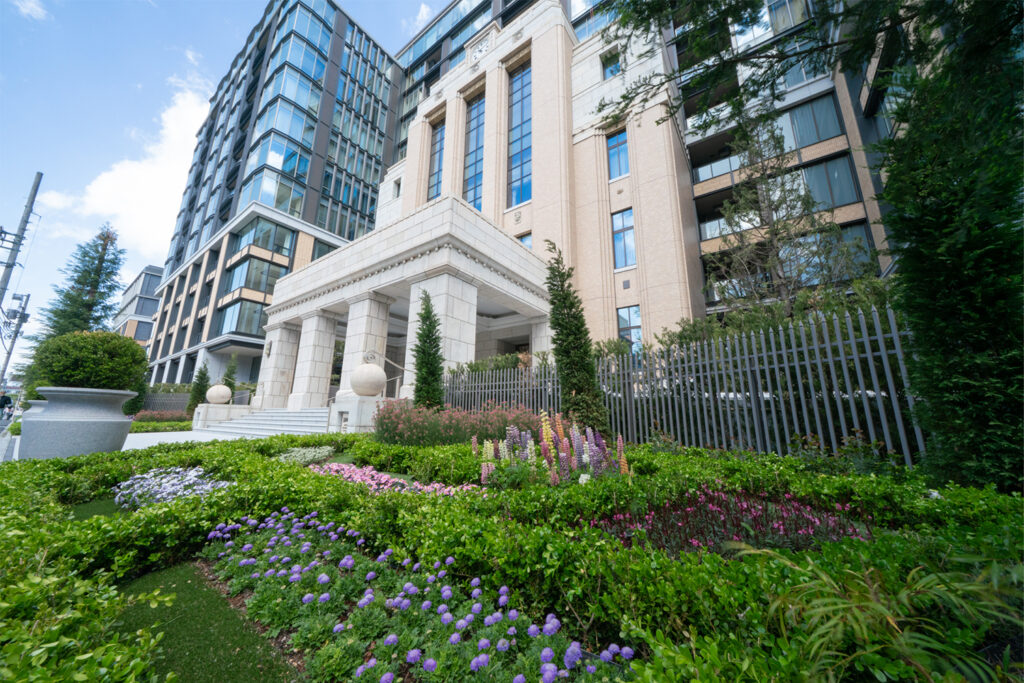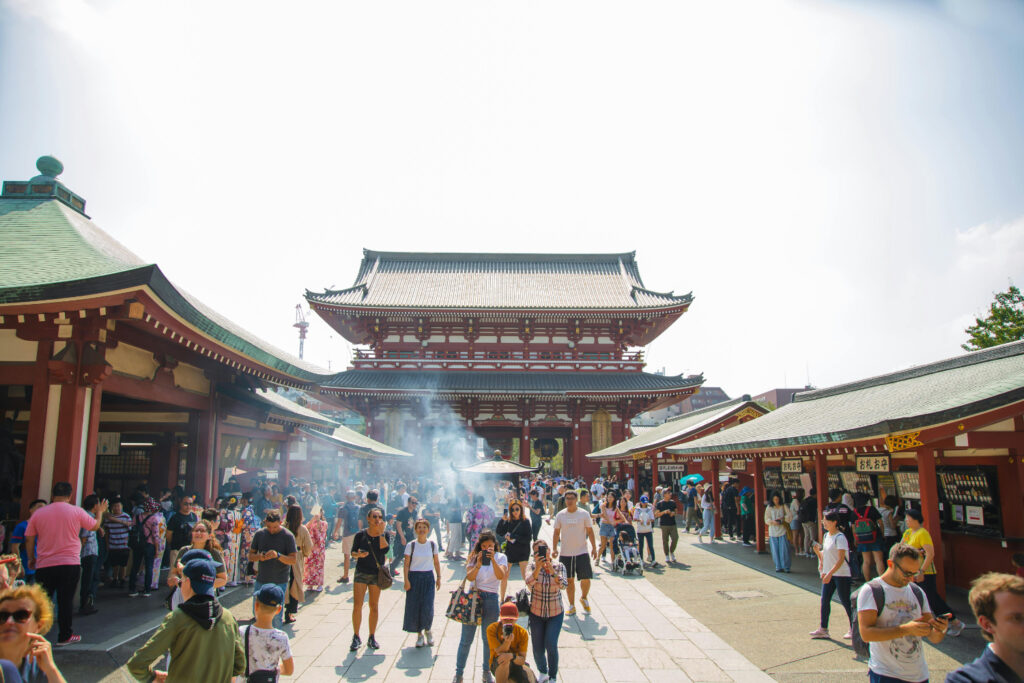
The average monthly Tokyo salary is approximately ¥576,000 ($3,950 USD), translating to ¥6,912,000 ($47,400 USD) annually. This reflects the substantial premium that Japan’s capital commands for skilled workers compared to the national average of ¥4.60 million ($31,500 USD) per year. The average salary in Japan varies significantly across regions, industries, and experience levels.
Japan’s salary landscape has changed dramatically in 2024-2025, marking the biggest wage increases in over three decades. Wage increases hit their highest level since 1991 at 5.10% in 2024, with preliminary 2025 data showing continued strong growth at 5.46%, creating unprecedented opportunities for high-earning professionals in Tokyo’s competitive market. Understanding Japan’s salary structure is important whether you’re planning a career move, evaluating investment opportunities, or considering real estate purchases in Tokyo’s luxury market. This guide covers everything from entry-level wages to executive compensation, with a special focus on how high earners can maximize their wealth through strategic real estate investment.
Understanding Japan’s Salary Structure
Japan’s employment system works differently from many Western countries. The traditional approach combines monthly base salaries with significant biannual bonuses that can equal several months of pay. The nationwide average annual salary bonus in Japan was ¥671,800 ($4,600 USD), making total compensation higher than base salaries alone suggest. Japanese companies traditionally used age-based salary progression, but this is changing toward merit-based approaches. Many firms conduct performance reviews every 16 months, with salary increases ranging from 2% in education to 5% in healthcare.
The bonus system remains key to Japanese compensation. These payments typically come twice yearly and can range from one to six months of salary depending on company performance and individual contributions.
If you are interested in finding work or changing employment in Japan, Hello Work is Japan’s official employment center, with some branches specializing in support for foreigners.
Japan’s Average Salary Breakdown by Category

The 2025 median salary in Japan is ¥472,000 ($3,240 USD) per month, meaning half the workforce earns below this level and half earns above it. The median provides a more accurate picture of typical earnings since it’s less affected by extremely high or low salaries.
Industry variations are equally important. Technology and IT professionals earn well above the national average, with many positions paying more than ¥10 million ($68,500 USD) per annum. Finance professionals in Tokyo earn between ¥6-12 million ($41,100-$82,200 USD) yearly. Education level significantly impacts earning potential. People with a Certificate or Diploma earn 17% more than those with only a High School Diploma. Bachelor’s Degree holders see a 24% increase, while Master’s Degree holders earn 29% more than Bachelor’s Degree holders. Age also plays a crucial role. Younger workers start at lower levels, with significant increases in their 30s as they move into specialized roles. Salaries usually peak in the late 40s or early 50s when professionals hold senior positions.
Median Monthly Salary by Region in Japan (2024-2025)
Key Regional Differences:
Tokyo offers the highest average salary in Japan due to its large business market and the presence of many big corporations, followed by cities like Yokohama and Osaka. Professionals in rural prefectures may find their salaries 20-30% lower than the national average, which reflects the economic differences across the country.
Salaries are highest in Tokyo, where the cost of living is high. Other cities, such as Osaka and Fukuoka, generally offer lower wages, reflecting regional economic conditions and living costs. However, cities like Fukuoka, Sapporo, or Hiroshima are much more affordable and rent and daily expenses can be 30-40% lower. Higher wages in Tokyo could present more opportunities as they are willing to rent more expensive properties. This could be one reason why the Japanese Capital has become a hub for Real Estate Investment.
It’s important to note that salary figures discussed are gross amounts before taxes. Japan’s progressive tax system, combined with social insurance contributions, means take-home pay is typically 70-75% of gross salary for high earners. Professionals earning ¥15 million annually can expect approximately ¥11-11.5 million in net income after taxes and deductions. This still provides substantial purchasing power in Tokyo’s market.
Note: Salary figures are median values representing the midpoint where half of workers earn more and half earn less. These figures include base salary before taxes and may vary by industry and experience level. Exchange rates calculated at approximately ¥148 = $1 USD as of 2024-2025.
Data Sources: National Tax Agency – Private Sector Salary Survey and Ministry of Health, Labour and Welfare – Basic Survey on Wage Structure
Part-Time Employment in Japan
Part-time work plays a big role in Japan’s employment landscape. Many students, parents returning to work, and people seeking flexible schedules choose part-time positions. Understanding part-time wages helps you plan your finances, whether you’re working part-time yourself or considering investment properties near employment hubs.
The average hourly wage for part-time workers in Japan reached ¥1,279 ($8.80 USD) in 2023, marking the highest level in the past decade. Tokyo’s minimum wage stands at ¥1,226 per hour as of 2025, with many employers paying above this baseline.
Part-time wages vary based on location and industry. Tokyo workers earn the highest minimum wage in Japan at about 1,113 Yen (7.68 USD) per hour, comparable to other high-income cities like Hong Kong and Seoul. Service sector positions show considerable variation. Information services and professional consulting roles pay around ¥1,374 and ¥1,313 per hour respectively, while hotel and restaurant positions average ¥1,037 to ¥1,051 per hour.
The gap between legal minimum wage and actual starting wages differs by location. Tokyo shows the largest difference at ¥177, meaning employers typically pay this much above the minimum, while Aomori has just a ¥31 gap. This reflects Tokyo’s competitive labor market and higher cost of living.
Students often work part-time in cafes, restaurants, and convenience stores to supplement their income. These positions provide flexible hours that accommodate class schedules. Many internationals working part-time in these venues can expect wages close to or above the minimum hourly rate for their prefecture.
For professionals earning high salaries, part-time employment figures matter when considering real estate investments. Properties near universities, business districts, and commercial areas attract part-time workers who need convenient housing options. Understanding local wage levels helps investors identify neighborhoods with strong rental demand from this demographic.
Part time employment could be a great option for expats whose partner works at a high earning job and when a second income could be beneficial for saving and extra spending money.
High Earner Perspective: Tokyo’s Executive Class
For high-earning professionals, Tokyo offers some of Asia’s most competitive compensation packages. The executive salary landscape has evolved dramatically, with companies recognizing the need to attract and retain top talent.
Manager-level positions in Tokyo command substantial salaries. The average annual salary for Managers working in Tokyo is ¥10-11.5 million ($68,500-$78,800 USD). These management roles typically require solid experience, proven skills, and the ability to oversee teams and complex projects effectively. The C-suite represents the pinnacle of executive compensation. The average salary for a Chief Executive Officer (CEO) in Japan is ¥12 million ($82,200 USD) in base salary alone. However, total compensation packages are much higher. Median total CEO compensation reached ¥271 million ($1.86 million USD), up 33% from the previous year due to expanded use of long-term incentives.

This shift toward performance-based compensation reflects Japan’s evolving corporate culture. Companies are moving away from traditional tenure-based pay toward merit and results-driven systems. Long-term incentives, particularly stock options and equity compensation, have become standard for senior executives.
Professional services and consulting represent another high-earning category. Investment banking professionals earn ¥8-30 million ($54,800-$205,500 USD) annually, depending on seniority and firm type. Management consultants at top-tier firms in Tokyo typically earn ¥14+ million ($95,900+ USD), with senior partners earning ¥50-100+ million ($342,500-$685,000+ USD) depending on performance and firm size.
The technology startup industry has also created new high-earning opportunities. Senior engineers at leading technology firms typically earn ¥8-15 million ($54,800-$102,700 USD), with exceptional talent at companies like Google earning up to ¥30 million ($205,500 USD) in total compensation. Principal Engineers at firms like Indeed can command base salaries up to ¥22.4 million ($153,400 USD). Executives in these industries benefit from equity compensation that can substantially increase total packages at successful companies.
International companies operating in Japan
International companies often offer enhanced compensation packages that include housing allowances, international school fee coverage, and tax equalization benefits. These additional benefits can significantly boost total compensation for expatriate employees and foreign executives working in Tokyo.
You can also compare salaries in different companies in Japan using business comparison websites such as Glassdoor.
Cost of Living vs. Salary Reality in Japan
High salaries in Tokyo translate to substantial purchasing power. For executives earning ¥15-30 million ($102,700-$205,500 USD) annually, luxury apartments in central Tokyo cost approximately 20-35% of gross income. This includes premium locations in Minato, Shibuya, Shinjuku and Chiyoda wards.
International school fees range from ¥2 to 4 million ($13,700-$27,400 USD) annually. While substantial, these costs are manageable for households earning above-average incomes. Healthcare costs remain low due to Japan’s national insurance system. High earners in Tokyo have considerable financial flexibility due to their substantial incomes relative to living costs. Professionals earning between ¥20 and ¥40 million ($137,000–$274,000 USD) annually can maintain a comfortable lifestyle while building wealth through strategic investments, though individual savings rates vary based on lifestyle choices and financial goals. This income level provides opportunities for real estate investment, portfolio diversification, and long-term wealth accumulation.
How Much Do Foreigners Earn in Japan?
Foreign workers in Japan face a unique salary landscape that differs from their Japanese counterparts. According to the Ministry of Health, Labor and Welfare’s 2023 Basic Survey on Wage Structure, the average monthly salary for foreigners in Japan is lower than the national average.
The main reason for this disparity lies in the demographics and career patterns of foreign workers. Many foreigners in Japan are young professionals, often in their 30s or younger, who come to gain skills, advance their careers, or earn higher incomes than in their home countries. The salary gap doesn’t necessarily reflect discrimination but rather reflects age and experience differences. With shorter average tenure and age compared to Japanese workers, foreign employees typically fall into lower salary brackets. Since Japan’s salary structure rewards longevity and experience, this creates a noticeable difference in average income levels.
However, skilled foreign professionals in specialized fields often command competitive salaries. IT professionals, engineers, and finance specialists working for international companies can earn ¥6-12 million or more. The minimum wage set at the prefectural level applies equally to both local and foreign workers, meaning foreigners working in Japan must follow the same minimum wage regulations as Japanese nationals. Everyone, regardless of nationality, is entitled to earn at least the minimum wage for their work.
International companies looking to attract local talent often pay more than the minimum wage, particularly in areas where specialized skills are in high demand. Foreign executives and senior professionals in Tokyo’s financial district or tech sector frequently earn salaries comparable to or exceeding their Japanese peers, especially when working for multinational corporations that follow global compensation standards.
For foreign workers considering real estate investment in Japan, understanding your earning potential is important. Even with slightly lower average salaries, foreign professionals earning a good salary in Tokyo can afford property investments in Tokyo’s emerging neighborhoods or rental properties in high-demand areas. The key is matching your income level with appropriate investment strategies and property locations that fit your budget while offering strong appreciation potential.
For help with investing in Real Estate in Tokyo contact Housing Japan Today!
Real Estate as Wealth Building Strategy

High-earning professionals increasingly view real estate as a cornerstone of wealth building. The weak yen, low interest rates, and stable legal framework make Tokyo real estate attractive. Foreign buyers account for about 15%-20% of luxury condo purchases in central Tokyo. The average new condominium in Tokyo’s 23 wards costs over ¥110 million ($753,000 USD) in 2025. Premium neighborhoods around Roppongi/Azabu in Minato, or Daikanyama/Omotesando in Shibuya are in great demand. Despite high entry prices, luxury properties continue finding buyers quickly. on top of this Japanese banks now offer mortgages based on income assessment rather than purely collateral-based lending. This shift benefits foreign investors with strong income streams. Mortgage rates remain near historical lows for homes and investment properties.
Maximizing Your High Income Through Tokyo Real Estate
Strategic real estate investment allows high earners to leverage their income for long-term wealth building. Location selection proves critical for success. High-profile individuals gravitate toward Tokyo’s upscale neighborhoods like Minato Ward, Shinjuku Ward, Chiyoda Ward and Shibuya Ward for their prestigious addresses and strong security. Minato ward stands out for luxury investment properties. Areas like Roppongi, Azabu, and Toranomon offer proximity to business districts and international amenities. Properties here attract high-quality tenants and show strong appreciation potential. Emerging areas offer value opportunities. Waterfront districts like Jiyugaoka and Ota Ward benefit from infrastructure development and improved transportation links while providing better entry pricing with strong appreciation potential.
Working with experienced real estate professionals becomes essential at higher investment levels. With 25 years of experience, Housing Japan specializes in luxury real estate transactions and understands the unique needs of high-net-worth individuals. Their expertise covers market analysis, property selection, financing coordination, and ongoing management services. The company’s international client experience proves valuable for foreign investors navigating Japan’s property market. They provide English-language support throughout the transaction process and help clients understand local market dynamics, legal requirements, and tax implications. Building a property portfolio requires systematic planning. Starting with a primary residence in a prime location establishes local market knowledge and financing relationships.
Future Japan Salary Trends and Opportunities

Japan’s salary landscape continues evolving as the economy adapts to demographic changes and global competition for talent. Japanese wage increases hit their highest level since 1991, reflecting companies’ recognition that competitive compensation is essential for attracting talent. On top of this, the technology sector continues driving salary growth. Japan’s digital transformation creates high demand for skilled professionals in artificial intelligence, cybersecurity, and cloud computing.
Companies pay premium salaries for scarce technical skills. Government initiatives to attract foreign talent include expanded visa programs and tax incentives. The plan to welcome 820,000 skilled foreign workers over five years creates competition for top professionals and upward pressure on salaries. Startup ecosystem development provides new high-earning opportunities. As Japanese companies embrace innovation, equity compensation becomes more common. Early employees at successful startups can achieve substantial wealth creation through stock options.
Conclusion and Next Steps
Japan’s salary environment in 2025 offers unprecedented opportunities for high-earning professionals. The average salary in Japan is ¥4.60 million ($31,500 USD) per year, but executives and specialists can earn multiples of this amount in Tokyo’s competitive market. For professionals earning ¥15 million ($102,700 USD) or more, strategic real estate investment provides an excellent wealth building opportunity. Tokyo’s stable market, attractive financing conditions, and strong rental demand create favorable conditions for building substantial investment portfolios.
The combination of high salaries and real estate investment potential makes Tokyo one of the world’s most attractive locations for ambitious professionals. Whether you’re considering a career move to Japan or looking to maximize your existing high income, understanding both salary trends and investment opportunities is essential. Housing Japan stands ready to help high earners navigate Tokyo’s luxury real estate market. Our expertise in working with international clients, combined with deep local market knowledge, ensures successful investment outcomes. From initial market analysis through ongoing portfolio management, we provide comprehensive support for high-net-worth individuals building wealth through Tokyo real estate.
Ready to explore Tokyo’s luxury real estate opportunities? Contact Housing Japan for a personalized consultation with our real estate experts. Discover how high earners are building substantial wealth through strategic property investment in Tokyo’s premium market.
Contact Us
Housing Japan
7F BPR Place Kamiyacho, 1-11-9 Azabudai, Minato-ku, Tokyo, Japan 106-0041
Q&A: Salaries and Real Estate Investment in Japan
What is the average salary in Tokyo? The average monthly salary in Tokyo is ¥576,000 ($3,950 USD), totaling ¥6,912,000 ($47,400 USD) annually. This is significantly higher than Japan’s national average of ¥4.60 million ($31,500 USD) per year, reflecting Tokyo’s premium for skilled workers and higher cost of living.
How much do executives earn in Japan? Manager-level positions in Tokyo earn ¥10-11.5 million ($68,500-$78,800 USD) on average annually. CEOs average ¥12 million ($82,200 USD) in base salary, with median total compensation reaching ¥271 million ($1.86 million USD) including bonuses and long-term incentives.
Are salaries increasing in Japan? Yes, Japan experienced its highest wage increases since 1991, with 5.10% growth in 2024 and 5.46% in 2025. This marks the biggest salary growth in over three decades, creating opportunities for high-earning professionals in Tokyo’s competitive market.
What is the average new Tokyo condominium price? The average new Tokyo condominium costs ¥110 million ($753,000 USD) in 2025.
What industries pay the highest salaries in Tokyo? Technology, finance, and consulting offer the highest salaries. IT professionals earn over ¥10 million ($68,500 USD) on average annually, investment bankers earn ¥8-30 million ($54,800-$205,500 USD) on average, and management consultants at top firms earn ¥14+ million ($95,900+ USD) on average yearly.
What is the average part-time wage in Japan? Part-time workers in Japan earn an average of ¥1,279 ($8.80 USD) per hour as of 2023. This varies by location and industry, with Tokyo offering the highest rates and service sectors showing the widest pay ranges.
Can foreigners work part-time in Japan? Yes, foreign residents can work part-time after applying and being given work permission (officially called a ‘Permission to Engage in Activity Other Than That Permitted’ or 資格外活動許可. Student visa holders can work up to 28 hours per week during term time, while those on other visa types should verify their work restrictions with immigration authorities.
Housing Japan specializes in luxury real estate in central Tokyo, offering comprehensive services from property acquisition to portfolio management. Whether you’re seeking your first investment property or expanding an existing portfolio, our international team provides expert guidance tailored to high-net-worth individuals.f
Source: Ministry of Health, Labour and Welfare: Labour Statistics











